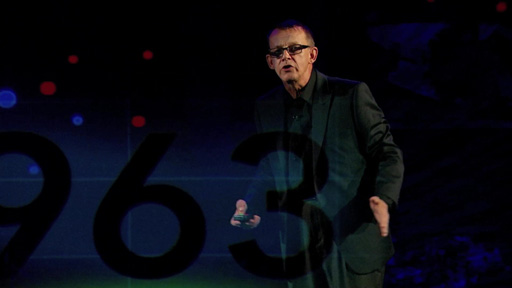5 Looking into the future
Throughout the course you have been considering the issues around the lottery of birth in a variety of ways, drawing on a range of disciplines.
When sociologists talk to demographers, and both talk with economists, political scientists and human geographers, they can begin to join the dots. Different questions and different answers can emerge.
Activity 2
Find media coverage of a particular political, socio-cultural or scientific change or breakthrough that is directly related to inequality. This could be gender, disability, income, wealth, or geographical inequality.
As an example, watch Hans Rosling explain how the washing machine helped to push back gender inequality.

Transcript
[MUSIC PLAYING]
[APPLAUSE]
[LAUGHTER]
And then I ask my students. I've asked them. Over the last two years, I have asked, how many of you doesn't use a car? And some of them probably raised their hand, you know, and say, I don't use a car. And then I put the really tough question. How many of you hand wash your jeans and your bed sheet? And no one raised their hand. Even the hardcore in the green movement use washing machines.
[LAUGHTER]
[APPLAUSE]
[APPLAUSE, CHEERING]
[MUSIC PLAYING]
Now, using your own example, consider the three questions below and write between 300 and 600 words explaining your answers.
- Describe the issue (include link to the news story) and explain why you have chosen that example.
- Why is this important to the lottery of birth?
- What might this mean for the lottery of birth in your country?
Remember that the phrase ‘lottery of birth’ is used to mean that how, when and where you are born, grow up and live is profoundly and widely unequal and that these inequalities will shape your whole life. The important thing here is that the change or breakthrough is new and/or significant in some way.
The issues that you could discuss include:
- an underlying demographic transition and the issues this will give rise to
- the economic forces that will alter inequalities, for better or worse
- social cultural changes that will address inequalities
- the (lack of) political will to tackle inequalities both within and across nations.
The aim of this activity was to help you to put into action some of what you’ve learned throughout the course. Looking for new developments and assessing their ability to affect change in a country or in the world is important in learning about the lottery of birth. You’ll have used critical analysis, a skill which will help you in any further study.

